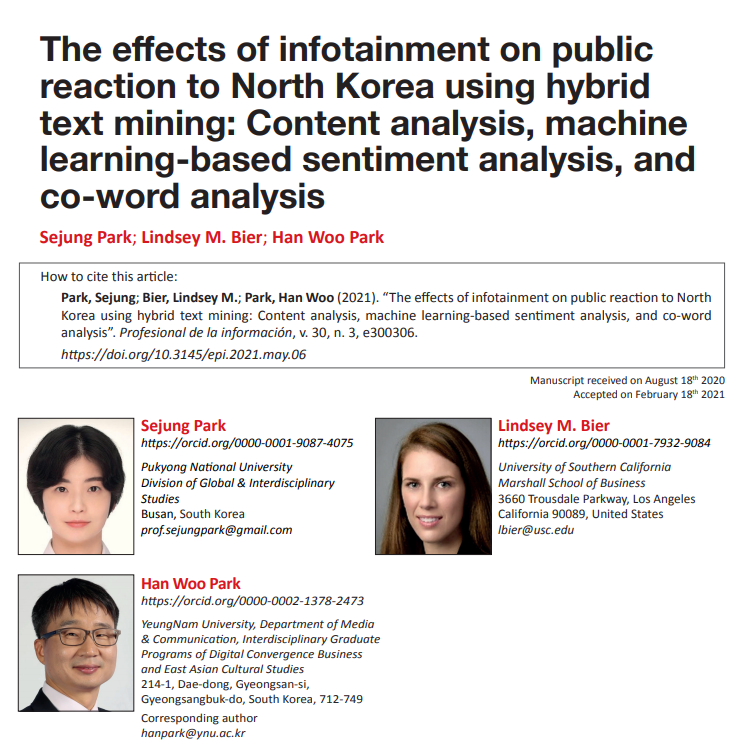
The effects of infotainment on public reaction to North Korea using hybrid text mining: Content analysis, machine learning-based sentiment analysis, and co-word analysis
On Sale
€15.00
€15.00
Abstract: This study proposes alternative measures of infotainment’s effects on audience perception and reception of news on social media, focusing on infotainment coverage of North Korea. We determine the elements of framing strategies and narrative styles in facilitating public attention, positive and negative responses, and engagement in news content. We used the YouTube application programming interface to collect data from VideoMug, Korea’s most popular YouTube channel, run by the Seoul Broadcasting System. We examined 23,774 replies commenting on North Korea-related video clips from July 1, 2018, to May 17, 2019. The findings show that entertainment and human interest frames were effective in drawing public attention to news coverage about North Korea. Using humor and colloquial language facilitated public attention (both positive and negative) and public engagement. Over half (59.55%) of the comments generated positive emotions; less than one-third generated negative emotions (31.41%); and a few generated neutral ones (9.03%). The infotainment approach helped make South Koreans’ attitudes toward North Korea and inter-Korean relations more positive. A small number of users who served as top authorities were extremely partisan and conducted intense debates about infotainment practices. This study’s hybrid analytical framework using computerized text mining techniques offers both theoretical and methodological insights into the function of infotainment in the context of social media.
